Geopolitics
„I do not think that Turkey is willing to annex Mosul”. Al-Nujaifi Describes the Post Daesh Future of Iraq [Interview]
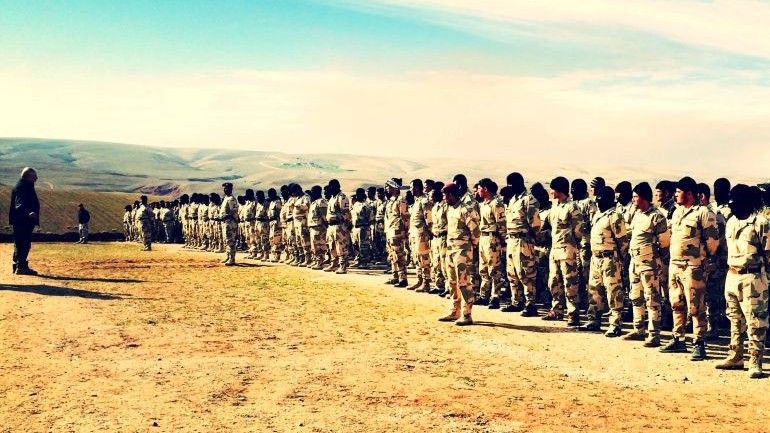
I do not think that Turkey is willing to annex Mosul. They are only willing to make Mosul a safe city and to make it free of forces such as Daesh, PKK or Shiite Militia. They want Mosul to be safe, free of those forces, because this is beneficial to them, and we think that this is beneficial to us too, since these organizations pose a problem for Mosul. However, I do not think that Turkey is willing to annex Mosul. – Interview conducted by Witold Repetowicz with the former governor of the Nineveh province, and key ally of Turkey in Iraq, Athil al-Nujaifi.
Athil al-Nujaifi, born in Mosul back in 1958, is one of the key Sunni politicians in Iraq. He was the governor of the Nineveh province, within the period between 2009 and 2015. At the time, his brother, Osama al-Nujaifi, acted as the speaker at the Iraqi Parliament, and then he became the Vice President. Athil al-Nujaifi was the governor of Mosul, when back in June 2014, so called ISIS took over the city, with the whole province to follow. Nujaifi, following those events, ran away to Erbil. Back in 2015, he has been found guilty of the fall of Mosul, along with the former PM Nuri AL-Maiki, by a parliamentary commission. He no longer could work as the governor, following the aforesaid decision. Nujaifi began to create his own Sunni Armed Forces, trained by Turkey, after the above developments. This led to emergence of a conflict between him and numerous Shiite politicians, rejecting the illegal presence of the Turkish forces in Iraq. Nujaifi was accused of treason, and an arrest warrant has been issued. Nujaifi is also an adversary of some of the Sunni politicians and tribes, i.e. the Jbouri tribe, the representative of which, Salim al-Jbouri, replaced the brother of the former Nineveh governor at the position of the speaker (head) of the parliament. Still, Nujaifi is considered to be one of the most important figures of the Iraqi politics.
You have created forces, also known under the name Hashed Watani. What is the quantitative shape and role of this armed formation, within the ongoing Mosul operation?
At the moment these forces are known as Hars al-Nineveh, the Guards of Nineveh. They are fighting together, alongside the 16th Division of the Iraqi Army, and they have been concentrated in the Northern sector, in the Mosul Dam area. Now, they are stationed at the very northern border of the city of Mosul. As I have said, we are fighting alongside the Iraqi army, but our armament is not sufficient, we have no main battle tanks at our disposal, and thus we are not operating at the frontline, we are following the Iraqi Army to take over and secure the areas liberated by them.
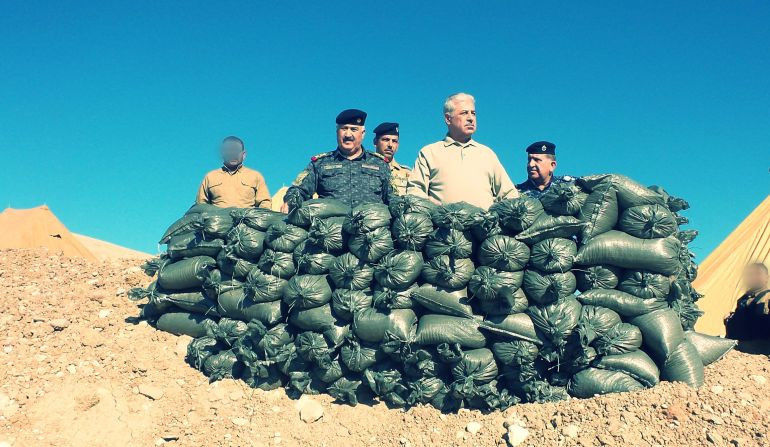
How is the cooperation with the Iraqi Army going? Earlier on the Iraqi government had been rejecting the Hashed Watani contribution to the Mosul operation?
Yes, but now we are commanded by the Iraqi Army, we are following its orders.
Do these problems belong in the past then?
I don’t know. Virtually no problem exists since, as I have said, we are operating under the command of the Iraqi Army which, sometimes, even provides us with weapons and ammo, we have no problems in working together. However, a political problem emerges, since the Shiite militias, i.e. Hashed Shaabi, does not accept our units as a part of the official armed forces.
What is the quantitative status of those forces?
25 thousand.
Were your forces being trained by the Turkish?
Yes they were and still are.
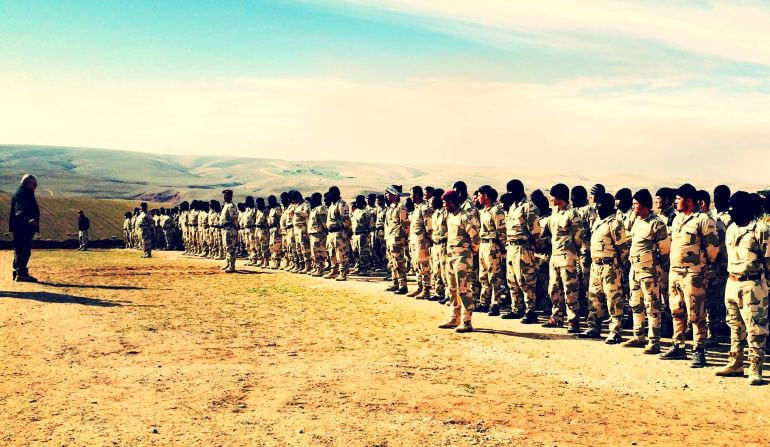
And what do you think of the accusations made by Baghdad, claiming that the Turkish presence in Iraq is illegal?
This is an issue related to misunderstanding, concerning the two types of forces that maintain presence in Iraq. One of the issues is the training mission, and here, the Iraqi authorities do not have any problems. This takes place on the basis of a request issued by the PM Abadi himself, who asked the Turkish Army to train the Iraqi Army. The concerns are related to the combat deployment, the units which entered Iraq around 7-8 months ago, to secure these areas together with Peshmerga.
And what is your opinion regarding the latter issue, i.e. the combat units, not the Turkish training units, and their presence in Iraq?
I think that the units in question are not very significant, a couple of main battle tanks, some artillery. These soldiers support Peshmerga in the Bashiqa region.
Nineveh, following Baghdad, is the province of the largest population in Iraq. Mosul is its capital, it is the second largest city in Iraq, in case of which its being taken over by the so called “Islamic State of Iraq and the Levant” back in June 2016, led to proclamation of a “Caliphate” and breakout of a war of the Kurdish and Iraqi authorities against the aforesaid terrorist organization. Nineveh is also the most complex province in Iraq, from the religious and ethnic standpoint. Besides the Arab-Sunnis, Kurdish Sunnis, Kurdish Yazidis, Christian Assyrians, Shiite Shabaks and Turkmen - Sunnis and Shiites. The Kurds also claim that a large portion of the Eastern and Northern part of the province shall be attached to Kurdistan. This was to happen on the basis of Article 140 of the Iraqi constitution, in line with which a referendum would be organized, nonetheless this provision has never been implemented. Instead of that, the Kurdish Army (Peshmerga) took over a large portion of this disputed area itself, while the Iraqi Army ran away from there back in 2014, fleeing from the Daesh forces. At the moment, some part of the said province is being controlled by the Turkish Peshmerga, some remains under control of the governmental forces and Shiite militia (Hashed al Shaabi) and some of that terrain is still being controlled by the so called IS. Within the province, PKK and Turkish Army also maintain their presence.
Some people claim that Turkey is driven towards annexation of Mosul and Nineveh. What is your opinion on those accusations?
I do not think that Turkey is eager to have such a problem. They are only willing to make Mosul a safe city and to make it free of forces such as Daesh, PKK or Shiite Militia. They want Mosul to be safe, without those forces, because this is beneficial to them, and we think that this is beneficial to us too, since these organizations pose a problem for Mosul. However, I do not think that Turkey is willing to annex Mosul.
And, in your opinion, will the Turkish units enter the Mosul area?
If the international coalition wants to do so. I do not think that would happen without arrangements made with the United States of America.
Getting back to Hars al-Nineveh, what is the operational structure of the said forces? Are they based on a tribal structure?
No, it is a purely military structure, with brigades and battalions, just like the Army.
And what role, in your opinion, is played by the Nineveh tribes in the fight against Daesh?
I do not think that the tribes have any real impact on the struggle, since they cannot fight Daesh on their own. They need the Army, they may only support the Army, since they, as a force, do not have capabilities of the same type at their disposal, i.e. weapons, command structures. Thus the tribal forces may only act as a local or tribal guard, not as a combat force.
But there are some tribal units, such as the Jbouri units, which additionally cooperate together with Hashed al-Shaabi?
Such groups have no autonomous meaning, they need to act together with other units, they will not be able to fight on their own. Contrary to Hars al-Nineveh, which is capable of carrying out autonomous operations, since this formation uses own vehicles, light, medium and heavy weaponry. We have everything, so we can make progress and fight, and they, the tribal forces, have only light weapons at their disposal, so they cannot fight on their own. Thus they must be subordinated, either acting under the Jurisdiction of Hashed al-Shaabi, or the Police, or the Army, and they are fighting together with them. And actually, some of the aforesaid units are tied to Hashed al-Shaabi and, in this way, they want to play a political role after the war.
And do tribes play a significant political role in the Nineveh province?
No.
And what is your view of the future of the Nineveh province? In the opinion of some of the Kurdish leaders, the area should be divided, so that new provinces are created in Shengal and on the Nineveh Plain for the Christians and for the Yazidis. What is your opinion here?
I do not agree with that plan, since I think that more problems may emerge on that ground. We must keep Nineveh in a form a single organism, but we need to change its administrative status, i.e. create seven new provinces, e.g. Sinjar (Shengal), Nineveh Plain or Tall Afar. But all of that would happen within the territory of Nineveh which could be transformed into an autonomous region, similar to the region of Kurdistan.
You have mentioned Shengal and PKK, however the forces there are not really belonging to PKK, they are rather attributed to YBS, involving the local Yazidis, not the Turkish Kurds. What should happen to them, in your opinion, after Mosul is liberated?
No, these are not local forces. Even if some of those units include locals, they are following the orders of PYD, the Kurdish Party from Syria. Thus, the administration of the Sinjar is not of Iraqi origin, it is Syrian. We have to change this. If such administrative body is composed solely of the locals, then we would have nothing against it, since we want the Sinjar province to have its own administration. When it comes to the ideology it is connected to, it is not a problem for us, nonetheless, we want only locals to be involved. And only a single Sinjar region should exist, divided into parts with different administration, as it happens now, since two administrative units have been actually established there. Obviously, within our plan, that united province of Sinjar would become a part of the Autonomy of Nineveh.
What about Tall Afar? After this city is liberated, a problem may emerge in between the local Turkmen, i.e. Shiites and Sunnis. What is the solution to this problem, any reconciliation between these two Turkmen groups?
Above all, Tall Afar shall be isolated from any external factors. If the Shiites from there are supported by the Shiite parties from Baghdad and the Sunnis receive support from Turkey, then reconciliation is out of any question. But if this is resolved solely on the local level, between the local Sunnis and Shiites, then I think that we may be successful.
I have heard that lists of people from Tall Afar who collaborated with Daesh have been prepared. What the Iraqi authorities should do about those people?
This depends, whether they have any criminal records or not. If yes, then they need to be punished in line with the law in force. If not, but they only welcomed Daesh with open arms, there are no reasons to punish them.
Some of the Shiite refugees, fleeing from Tall Afar, claim that numerous Sunnis living in the city indicated who is a Shiite to Daesh, they also took over houses and property of the Shiite neighbours. What about them?
As I have said, if they committed a crime, e.g. by taking property they did not own, we must punish them, but for that criminal offence, theft, not for a murder. If no crime was committed, no problem exists. Everything must be done in line with the law.
And what do you think about probability of retaliatory massacres organized by Shiites, in order to strike the Sunnis of Tall Afar?
I think that such scenario is highly probable if they enter Tall Afar as Shiite militias. Then, we may expect massacres and retaliation.
According to the plans made by PM Abadi, the militias are to remain outside Tall Afar. The city is to be liberated by the 72th Police Brigade and 92nd Brigade of the Iraqi Army, which, in their majority, are formed by Turkmen-Shiites from Tall Afar. So, are the massacres very probable in this case as well?
This will depend on the commanders. If the units have strong commanders, capable of controlling them, then no such thing would happen. However, Abadi needs to be careful here.
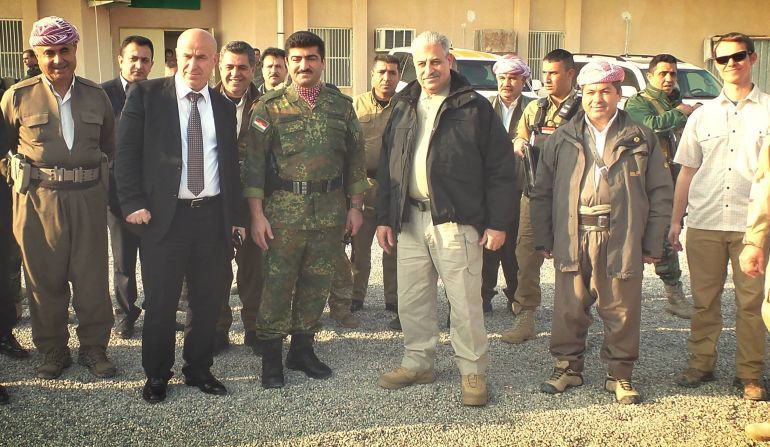
Numerous Christians from the Nineveh plain told me that almost half of the Christians living there before 2014 has left Iraq, and that they will never return. While the other half, staying as refugees in the South, in Baghdad or in Kurdistan, is afraid to return home. These people are telling that their situation was bad also before the Daesh emerged, back in 2014, that they have been persecuted within their own area. You were a governor of that province at the time, how can you respond to those claims?
The whole situation after the year 2003 was not good for the region, and this was not dependent on my being a governor. We had an improper regime at the time, while those minorities could not have been safe, since the regime was not proper, it did not provide everybody with equality and safety. Without strong authorities in that area, no one is able to provide safety to them. Thus, it is not the minorities that had a problem, as majority of the citizens encountered some issues. If we change the situation of the majority, providing them with safety, then it will be easy to provide safety also to the minorities. However, as long as we have a problem in Mosul, we will be unable to resolve the problems emerging in the Nineveh Plains, Al-Hamdaniyi and within other areas.
The Christians also claim that they have been persecuted by the Muslims living within the community. In your opinion, is there a religious conflict between the Christians and the Muslims?
No, it is not a problem arising on the ground of religion, it is not an issue of Muslims, it is a purely political problem in this area. Now nobody is able to effectively control this region. What can I do? Expel the Muslims from the area? This is impossible. Why, 10 years ago the Christians were safe, and now, a problem emerged? This is a political problem, we need to change the political status of this region, implement different administration. Without that, we will be unable to solve the issue of minorities.
According to one of the priests I have talked to, due to the fact that numerous Christians have left Ninevah, their houses will be taken over by Kurds on one hand and Arabs on the other, and this will start a rivalry related to change of the demographic structure, the goal of which would be to divide the area between them. What is your opinion on that matter?
The main issue emerging in Ninevah is seen in the conflict between the Kurds and the Arabs. If this issue is resolved, then the problems of those minorities are also resolved.
Peshmerga claims that it will not withdraw its forces from the area taken over in the period preceding the Mosul operation, but only from the areas such as Bashiqa, which have been freed after 17th October 2016. The Kurds may negotiate the administrative or control issues until the political problem related to the status of this area is resolved, in line with Article 140 of the Constitution, until the referendum takes place. What is your opinion on that matter?
I do not see any problems. I agree that this issue should be resolved in line with Article 140. Maybe it is not the right time to do that, but we need to negotiate this issue with the Kurds too. I think that no real problem exists between us and the Kurds. It is not a problem for me if Peshmerga stays within this area and secures it, while the Iraqi Army or Hars al-Ninevah secures other areas. The core goal is to find a way to provide safety within those areas. The administrative issues are a whole another thing, we need to resolve the financing and jurisdiction areas. And this cannot be done by force, the people need to state their wants. However, maybe it is not yet right time to do so, two or three years more would be needed. Now, it is a priority to provide them with safety and make it possible for them to get back home. This issue will be negotiated, but not with Peshmerga, but with the Kurdish political leadership, it is an issue which is of political, not military nature.
And who, in your opinion, is responsible for the fact that the Article 140 has not been implemented so far? According to the Kurds, this is the key issue here.
I do not think that this is the core issue within the problem. Article 140 has not been formulated in a way which makes it possible to see its application in practice. The said provision envisages three stages of implementation. First, normalization of the conflict zone, making it possible for all of the people from the said area to come back to their homes. Secondly, a population survey needs to take place. And only after that, at the third stage, a referendum could be organized defining the affiliation of those areas, to Kurdistan or other provinces or regions of Iraq. Unfortunately, we have not been able to complete even the first stage. The people could not return to their homes for political reasons, here we mean, in particular, the deportees who were moved by Saddam Hussein, as a result of his arabization initiatives.
Now, this is going to be even more difficult, right?
I think that we need to negotiate. For me it is not a problem whether the given village is a part of Kurdistan or Mosul. The problem here is the safety of that village.
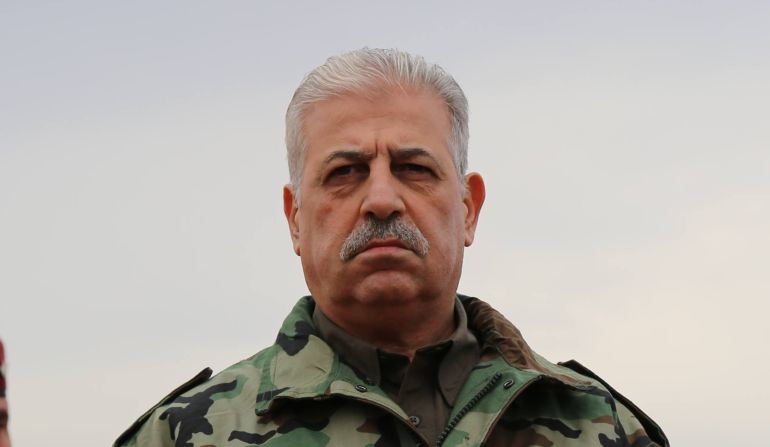
Next year, province council election is planned. Do you think that the procedure will take place?
Yes, but not in line with the plans. I think that the election may be postponed, couple of months delay could be expected.
Some people claim that the said election may take place as late as in 2018, along with the Parliamentary election?
No decision has been made within that scope. However, I think that we may expect that this would happen in 2017, but not in April, but six months later, and along with the Parliamentary election which would take place earlier.
What is your opinion on independence of Kurdistan?
This is an issue related to their decisions, if they decide it is better for them. I have no problem with that.
How do you project the relations between Kurdistan and Iraq, should Kurdistan announce its independence?
I do not think that Kurdistan would do this. I think that Kurds want more benefits from Baghdad, and then they will remain a part of Iraq. But, as I have said, it is their decision.
What is your relationship with President Barzani?
I think it is good, I very much respect what he does, since it is very important for Kurdistan now.
And what is the character of your relations with the authorities in Baghdad?
This depends, good with some people, bad with other people.
The interview has been conducted by Witold Repetowicz
